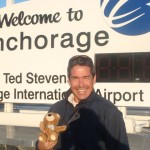jungle jeff Leadership Lesson. In other words, I promised to share today, what was reinforced the other day when I practiced what I preached.
As a professional speaker, there are certain deliverables every time a speech or workshop is given to an audience. Public speaking is the greatest fear humans have, even greater than the fear of dying.
Leadership insight:
- Lead, don’t manage – facilitate key points instead of telling them
Look, we all know this to be so simple it almost embarrasses me to try to convince you it’s important. And yet it is a key to becoming world class. Like yeast in bread. A little risk is required to be successful. Duh, right?
What’s risky is doing things a different way. If you do it the way you always do it, you can predict your results. Predicting an outcome when you take a risk is virtually impossible. While you can visualize a positive result, you can not guarantee it.
It is quite common in workshops to see video clips of something important and then watch with a certain purpose and debrief what insights were gained from the video’s content. That’s exactly what happened. Very routine. A video I’ve set up, watched and debriefed 1,000 times.
For the debrief, I tried something completely different. I asked a remarkably simple and open-ended question. In fact, one participant gave me a look that said, “You’re an idiot”. It took sheer will-power to not be shaken.
Afterwards, I asked my partner how he thought it went. In ten years, we both agreed, it was the single best debrief of that video we’d ever experienced. And we teach with many different partners.
What at one point seemed like a certain failure, because I didn’t panic or give up, turned out to be extraordinary. Leaders do not get paid to fail (although maybe they should).


